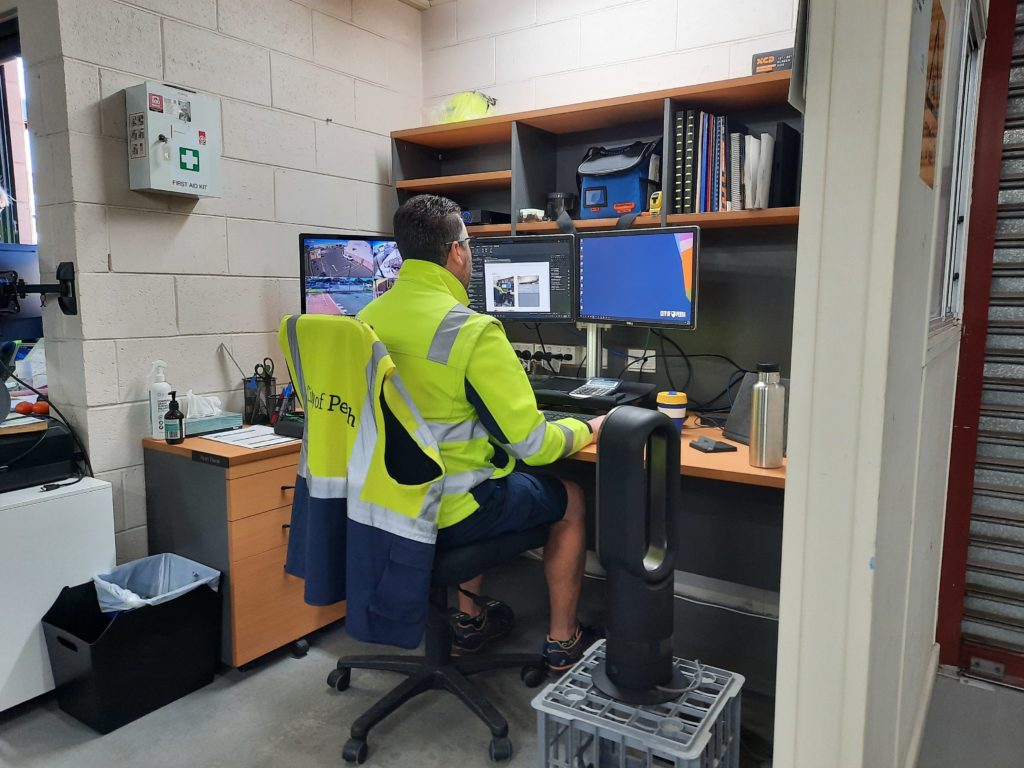How to safely work in heat?
The Work, Health and Safety Act WA (2020) requires local governments (PCBUs) to ensure health and safety, so far as is reasonably practicable, by eliminating hazards and risks.

These services support members in meeting their responsibilities under work, health and safety legislation to provide a safe work environment – including the identification and proactive management of psychosocial hazards.
With emphasis on mediation, workplace counselling and critical incident debriefing, our team aims to help members mitigate the risk of psychosocial hazards.
Psychological injuries are a significant contributor to workers’ compensation claims with numbers in Western Australia continuing to grow year on year, since 2017/18 mental stress claims across the State have grown by 28%.
The leading contributor to these claims is work related harassment and bullying and therefore, our preventative services aim to intervene early so that injuries are less likely to occur.
From a local government perspective LGIS has seen a steady increase in psychological injury claims year-on-year. From 2017 to 2021 we’ve received 289 claims with a total cost of over $15.8 million. The average cost of psychological injury claims is $56,923, substantially more than the average cost of all claims at $19,388.
The Work, Health and Safety Act WA (2020) requires local governments (PCBUs) to ensure health and safety, so far as is reasonably practicable, by eliminating hazards and risks.
Local governments are subject to strict legal obligations, including those contained within the State Records Act 2000 (WA), to maintain records created or received in the exercise of their functions.
When considering high risk or high hazard assets, it is important to adopt a proactive approach while managing them. Due to resource constraints, property risks are commonly managed in a reactive manner after an incident, near miss, or workplace inspection by a regulator or LGIS.
Psychosocial hazards are aspects of work and work situations which can lead to psychological injury of physical harm. These stem from:
Workplace psychosocial hazards are related to the psychological and social condition of the workplace rather than just the physical conditions. These include stress, fatigue, bullying, violence, aggression, harassment and burnout, which can be harmful to workers and compromise their wellbeing.
The Work Health and Safety Act (WA) 2020 (WHS), requires that a PCBU (Person conducting a business or undertaking), which is the employer, ensures so far as is reasonably practicable that workers are safe and healthy while at work. It should be remembered that
a volunteer is also defined as a worker under WHS legislation.
Psychological safety is an important aspect of a workers overall health and safety. Employers have a duty to manage psychosocial hazards, with the appropriate controls. All officers, workers and ‘others’ (which includes elected members), have a responsibility to take reasonable care so that their acts or omissions do not adversely affect the health and safety of other persons.
Safety is everyone’s responsibility – councillors, leaders and workers – we all have a part to play.
We now offer a range of proactive services to our members to address workplace issues aimed at preventing psychological injury. These services are available as a benefit of LGIS membership.
1. Mediation
Workplace conflicts can affect both those who are directly involved and others who get caught up in issues. If not handled correctly, conflicts can easily escalate leading to a negative work environment.
Mediation can help to address the issue, before it escalates. It is not about finding fault. The process involves working with individuals to find possible solutions. The services is confidential and can be an incredibly effective, early intervention tool.
2. Critical incident debriefing
Unfortunately, critical incidents may occur and often impact workers.
Incidents such as workplace death, witnessing a serious injury, or a significant community event like a bushfire or cyclone may have a significant impact on workers.
The LGIS critical incident debriefing service can help, supporting workers to process what has happened. Our team also provides face-to-face support to staff impacted by such incidents.
3. Counselling
LGIS counsellors can provide support on a range of work related issues.
Our short term counselling aims to provide local government workers, elected members and bushfire volunteers with support for a wide variety of work related issues such as work relationships, conflicts at work and other work related issues.
To access this service, an individual must be referred to LGIS by the local government using the referral form overleaf, which will entitle the individual up to six sessions.
For more information on these changes, please get in touch with our People Risk Manager – Emma Horsefield at [email protected] or 0407 957 932.

LGIS receives approximately 1,300 claims on average each year; for the past five years, of those the vast majority are common law claims.

A decade’s long partnership between LGIS and the Royal Life Saving Society of WA (RLSSWA) has delivered benefits to the entire WA local government sector – but work still needs to be done to make sure that audit recommendations are actioned to keep aquatic centres safe.

The City of Perth engaged the LGIS injury prevention team
to evaluate workstations of a group of employees at their depot to make sure they were comfortable, safe and less likely to injure themselves.
LGIS is the unifying name for the dedicated suite of risk financing and management services for WA local governments, established by the WA Local Government Association in conjunction with JLT Public Sector (part of the Marsh group of companies). LGIS is managed by JLT Public Sector (ABN 69 009 098 864 AFS Licence 226827).
Risk Matters, via this website, is designed to keep members, their staff and elected members informed on topical risk management and insurance issues and LGIS programs and services.